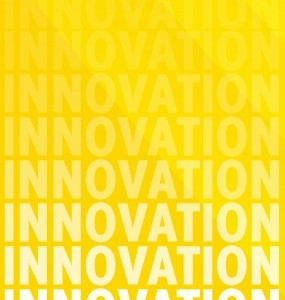 Some say that the US is losing its innovation edge in the world markets; there are concerns that we have lost our way in supporting fresh ideas and new thinking. In the face of the current chaotic and unpredictable global economy and the threat of ongoing recession it is no wonder that these questions are arising. When considering innovation on a national scale one needs to take the long view and assess the economic growth of each sector of the economy on the whole system.
Some say that the US is losing its innovation edge in the world markets; there are concerns that we have lost our way in supporting fresh ideas and new thinking. In the face of the current chaotic and unpredictable global economy and the threat of ongoing recession it is no wonder that these questions are arising. When considering innovation on a national scale one needs to take the long view and assess the economic growth of each sector of the economy on the whole system.
Here again we need to consider what type of growth we are evaluating in each of these sectors; economists view growth in two ways, “extensive” and “intensive” growth. Extensive growth refers to the addition of new resources, capital and labor to the market; their cycles tend to be more volatile as they are vulnerable to short term market trends. These market driven fluctuations produce shorter cycles and therefore are not a good predictor of innovation trends.
Intensive growth is driven by new discovery and improvements in managing resources. Improvements in resource management can potentially impact whole systems and change the ways whole industries operate. Successful new discoveries bring to the market new opportunities, new industries and new investments. In both cases one can see how intensive growth tends to have deeper and long lasting impacts on the marketplace, can bring about significant waves of lifestyle changes and has the potential to change society in significant ways.
The information technology sector is one of those industries whose innovation potential, though still in its infancy, has the potential to change every aspect of life as we know it. The significance and impact of information technology is projected to be no less significant as the invention of electricity. Though its current impact on manufacturing and industry of all types as well as individual lifestyles is indisputable, it’s real and intensive growth potential and impact on every aspect of life is still many decades in the making.
How does this apply to the question of innovation in the US? One can view information technology as a symbol of the effectiveness of the US economic system’s ability to innovate and quickly adapt and capitalize on new ideas. The mindset of the US culture in general is deeply rooted in a sense of individualization and personal freedom and the US marketplace benefits from these engrained ideas in the psyche of its entrepreneurs. Generally we are comfortable in pushing the edge; asking tough “why” questions and exploring territories unfamiliar.
To keep this edge in the face of global market competition, entrepreneurs will do well to listen more and talk less at their teams; they need to take a much more proactive role in being curios and inquiring in effective ways so they can mine the imagination of everyone around the table.

